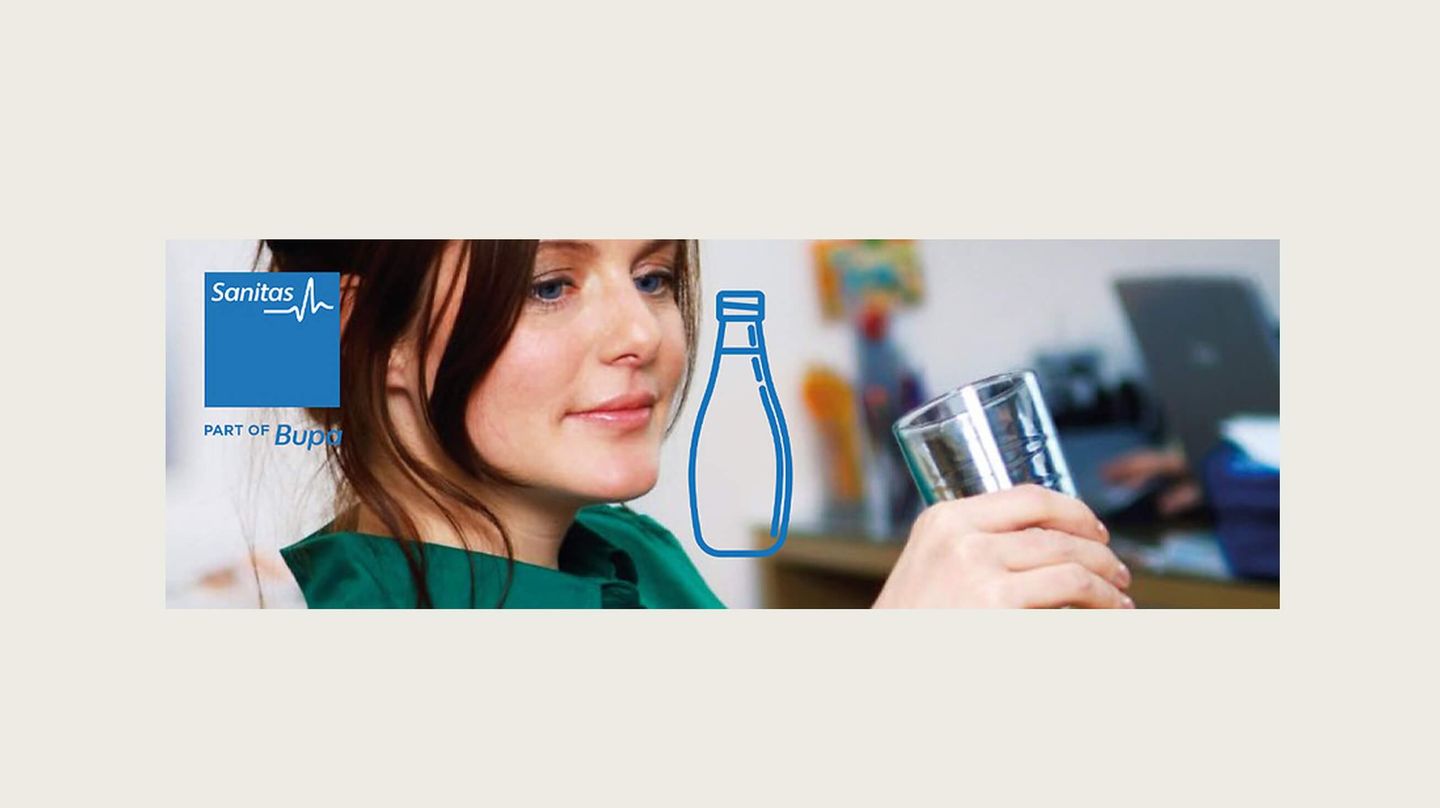
In order to ensure fully functioning physical and intellectual faculties and maintain a feeling of wellbeing, the body needs to regularly absorb water. This means drinking at least two litres a day.
Achieving an adequate fluid balance has a decisive effect on wellbeing and performance, It has been proven that insufficient fluid intake leads to a decrease in personal performance, resulting in disorders in concentration, attention and memory.
Basic needs
The reason you should drink two litres of fluids a day is because the body eliminates two litres a day through the skin, lungs, bladder and intestines.
As water is the largest component in the body, it cannot function without the corresponding intake for more than three days. The organs in charge of regulating the volume of fluid in the body are the skin and kidneys. In addition, transpiration keeps the body temperature constant at 37°C.
In addition to water you should also consume soup, soft drinks, fruit juices and vegetables, which have a high water content. However, alcoholic drinks tend to dehydrate body tissues.
A lack of water impedes the normal functioning of the blood flow, muscles, brain and other organs. A clear symptom is fatigue, which can lead to circulation disorders and constipation in the long term.
It is essential to achieve an adequate balance between fluid intake and intake of sodium and other electrolytes, such as potassium.
A normal diet usually provides the electrolytes required. However, in cases of extreme heat or intense physical activity it is essential to increase the intake of these substances, particularly sodium, in the form of salts.
The elderly and children
The feeling of being thirsty does not always increase when the lack of fluids reaches around 2% of body weight. There are two groups of people who often do not drink enough fluids; the elderly and children.
When an elderly person has insufficient fluid intake a very small amount of urine is eliminated from the kidneys, which results in a build-up of urinary wastes. Therefore, the elderly should not wait until they feel thirsty to drink water, hot or cold drinks or soup in order to avoid dehydration.
Children require an even larger fluid intake, as children under 12 cannot regulate their body temperature and are therefore particularly prone to dehydration.
Water and sports
Loss of fluids increases significantly when doing intense physical activities or in hot weather. In these cases, if fluid intake is insufficient, sweating is reduced, which leads to overheating and other physical disorders related to high temperatures.
People who live at high altitude or in a cold climate also need to drink more.